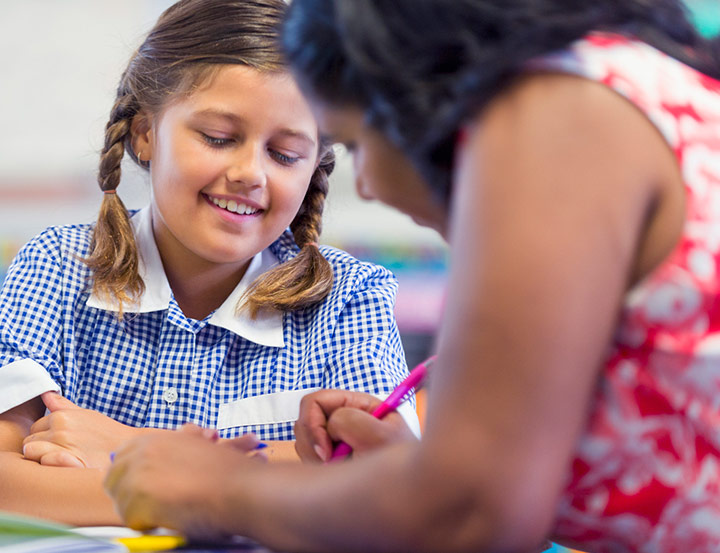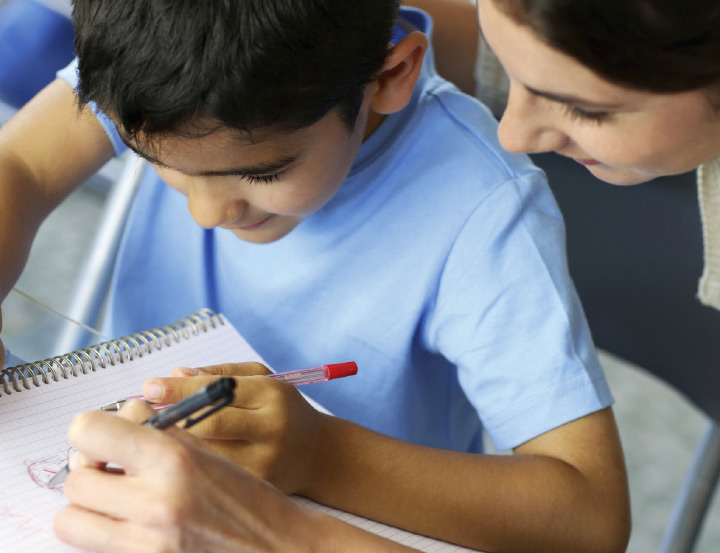A specific learning disability (specific learning disorder) is characterised by persistent difficulties learning a key academic skill. This academic underachievement is unexpected, and is not the result of a more general learning difficulty, such as an intellectual disability.
There are a number of specific learning disabilities that have the potential to affect a student’s school performance:
- A specific learning disorder with impairment in reading, often referred to as dyslexia.
- A specific learning disorder with impairment in written expression.
- A specific learning disorder with impairment in mathematics, often referred to as dyscalculia.
Do students with specific learning disabilities learn differently?
Students with specific learning disabilities do not require an inherently different teaching approach in order to learn. Essentially, all students benefit from exposure to high-quality, evidence-based programs and teaching strategies, including explicit instruction, retrieval practice and dual coding. This is especially the case for individuals with specific learning disabilities.
Explicit instruction ensures that students are provided with clear goals, step-by-step teaching, targeted feedback and guided practice. Dual coding involves the effective combination of language (either spoken or written) and visual images (including graphic organisers, slides, icons, diagrams, drawings, displays etc.) to facilitate learning. Retrieval practice is achieved through the use of tasks that bring information to mind from long term memory (e.g. quizzes, flashcards, reviews, etc.).
The main learning difference observed between individuals with a specific learning disability and those without is the length of time it takes them to learn particular academic subskills. Individuals with specific learning disabilities often require more time and more repetition in order to master these skills. However, once they have mastered the skill, or developed an understanding of the new concept, they are likely to perform as well as, or possibly even better than, their peers. It is also the case that although individuals with learning disabilities have difficulty in specific areas, they will often excel in others.

In this section:
- Introduction
- The difference between a learning difficulty and a learning disability
- What do we know about types of learning disabilities?
- Other developmental disorders that can impact on learning
- Identifying and diagnosing specific learning disorders
- Selecting a successful intervention program
- Use of assistive technology
- Supporting students with learning disabilities
- Children with learning disabilities may have low self-esteem



